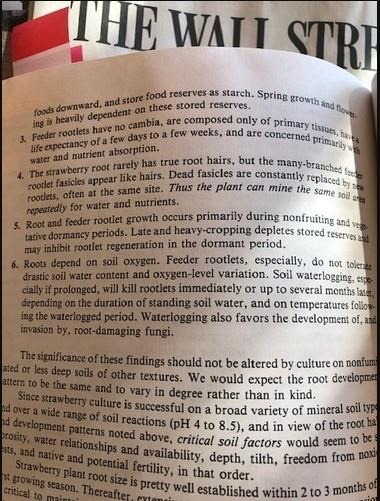By Mark Bolda
Along with the rising waters of the past few weeks, concerns about the status of our strawberries have risen as well.
For their part strawberry roots, as you can see from paragraph #6 out of the book "Small Fruit Management” by Galleta and Himelrick, depend on oxygen. Soil waterlogging will kill the feeder rootlets important for plant development and nutrient uptake; of course as conditions improve they will be replaced, but all of this takes time and energy from the plant. The magnitude of damage for each field is going to depend on the length of the waterlogging and the temperatures (read – the warmer the better for the plant). Too, and this is underlined by the writing on paragraph #6, this waterlogging also favors the development and the root invasion of damaging fungi, which for our area usually means Phytophthora.
I've been asked about what the extent of the damage here will be, and of course the answer is going to be it depends. We are already in the main lagging by a week or two because of the cool and dark conditions of the past few weeks, and fields that are saturated or even under water for lengthy periods of time will be set back more than that.

Source : ucanr.edu